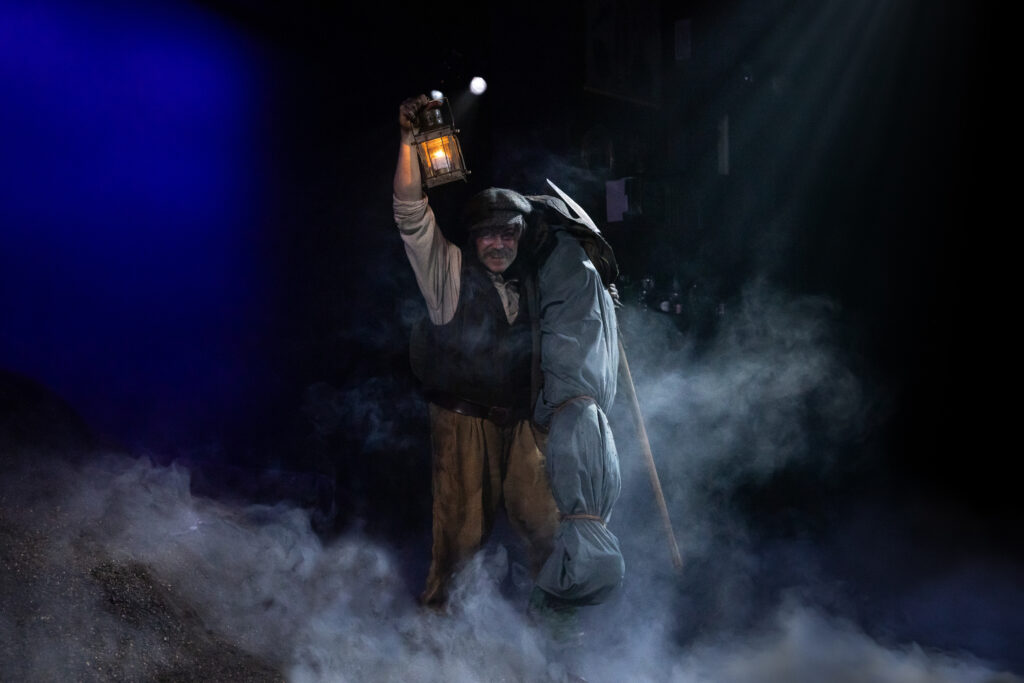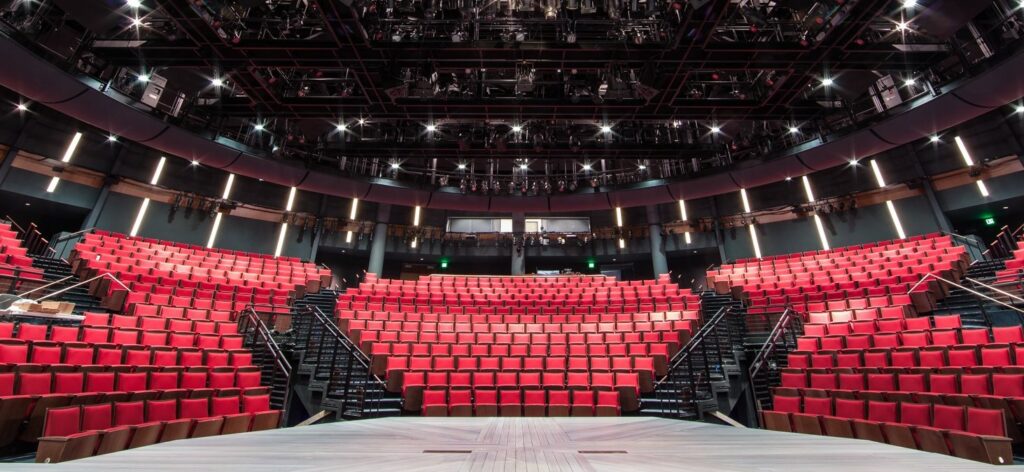Every year, one playwright receives a call that changes their life: they’ve won the Pulitzer Prize for Drama. But what does that actually mean?
After receiving this prestigious honor, English, Primary Trust, and August Wilson’s Fences became some of the most celebrated plays in American history. They will also all be seen on the stage at Alley Theatre, at some point in the next 12 months.
More Than a Medal: A Legacy of Impact
The Pulitzer Prize for Drama isn’t just a trophy for the mantelpiece. It is one of the highest honors in American playwriting. It measures not just artistry but cultural resonance. Since 1918, the prize has recognized plays spotlighting the American experience. It’s not only about crafting beautiful language or tight plot lines. It’s about saying something urgent, but in a way that lasts.
Winning the Pulitzer places a playwright alongside legends like Tennessee Williams, Thornton Wilder, Arthur Miller, Paula Vogel, and Lin-Manuel Miranda.
English: A Lesson in Identity, Language, and Belonging
Sanaz Toossi’s English, winner of the 2023 Pulitzer Prize for Drama, is set in a classroom in Iran where four adult students prepare for the TOEFL exam. Their goal is to learn English fluently enough to unlock new opportunities. What they discover along the way is far more personal and complicated. The play explores the tension between language and identity, and the cost of assimilation in a world where fluency often equals freedom.
With sharp wit and emotional depth, English reveals how language can both connect and divide. The Pulitzer committee called it a “quietly powerful play,” in which Toossi gives voice to characters who live between cultures and tongues. The play challenges audiences to rethink the privilege and power behind the English language itself.
Primary Trust: A Gentle Giant in Modern Theatre
Eboni Booth’s Primary Trust won the Pulitzer in 2024. The story follows Kenneth, a bookstore clerk facing profound loneliness and change. The Pulitzer committee called it a play that shows “how small acts of kindness can change a person’s life and enrich an entire community.” Booth crafts dialogue that feels natural yet deeply moving, placing empathy at the center of the theatrical experience.
August Wilson’s Fences: A Towering Achievement
August Wilson’s Fences (Pulitzer Prize winner in 1987) is epic in scope, language, and legacy. Set in 1950s Pittsburgh, the play centers on Troy Maxson, a former professional baseball player turned sanitation worker. He wrestles with the bitterness of lost opportunities and the responsibilities of fatherhood.
Wilson’s work has become foundational to American drama. Fences, in particular, is often compared to the great tragedies of Shakespeare and Sophocles. Wilson carved his heroes from Black American life, capturing the poetry, pain, and pride of a community.
Winning the Pulitzer helped cement Wilson’s place as a titan of theatre. Fences went on to enjoy multiple Broadway revivals and an acclaimed film adaptation starring Denzel Washington.
Why It Matters to See a Pulitzer Winner
Reading a Pulitzer Prize-winning play is powerful, but seeing one onstage is something else entirely.
Live theatre brings the emotional core of these stories to life in a visceral, immediate way. You’re not just witnessing a character’s journey, you’re sharing space with it. You hear every breath, see every flicker of doubt or hope, and feel the tension ripple through the audience.
When you attend a Pulitzer-winning play, you’re stepping into a moment of history. These works shift conversations, challenge assumptions, and reflect the depth of human experience. Whether it’s the linguistic precision of English, the gentle resilience of Primary Trust, or the thunderous heartbreak of Fences, these plays were awarded because they move us. They deserve to be experienced in full.
It’s not just a great night out, it’s a rare opportunity to witness the kind of storytelling that shapes culture.
So, What Does It Really Mean?
For a playwright, winning the Pulitzer Prize can be career-defining. It opens doors to national productions, attracts producers and directors, and elevates the work into academic syllabi and cultural conversations. But more than anything, it signifies that their story is part of the American story.
For audiences, it’s an invitation to witness something rare, to feel deeply, and to leave the theatre just a little changed.
Whether you’re a devoted theatre lover or just discovering what makes a play unforgettable, keep an eye on the Pulitzer winners. You might just find your next favorite story or see your own life reflected in unexpected ways.








